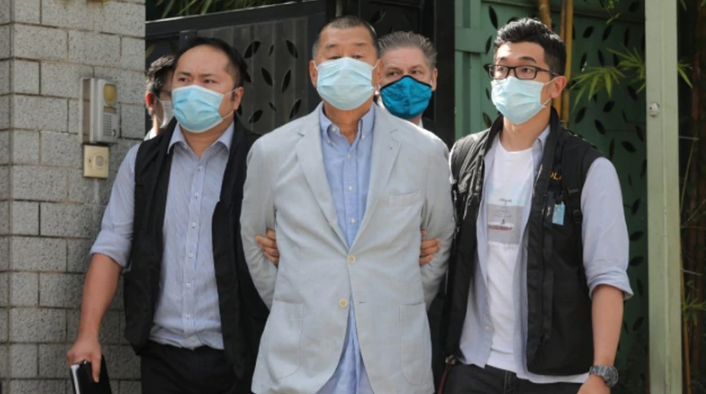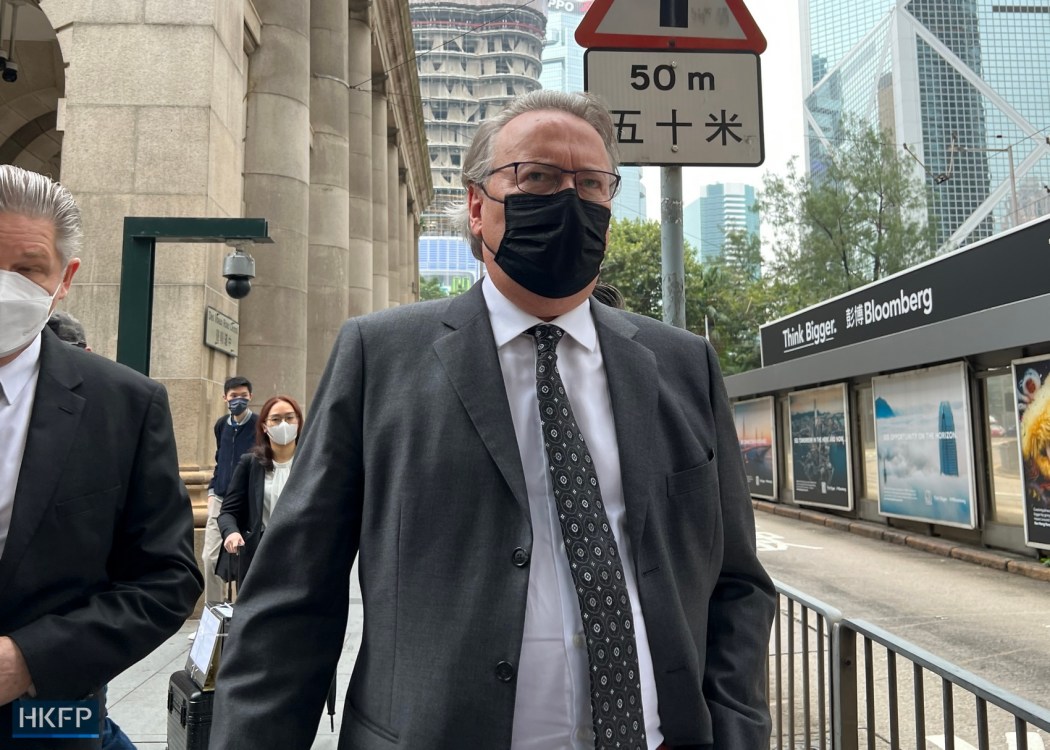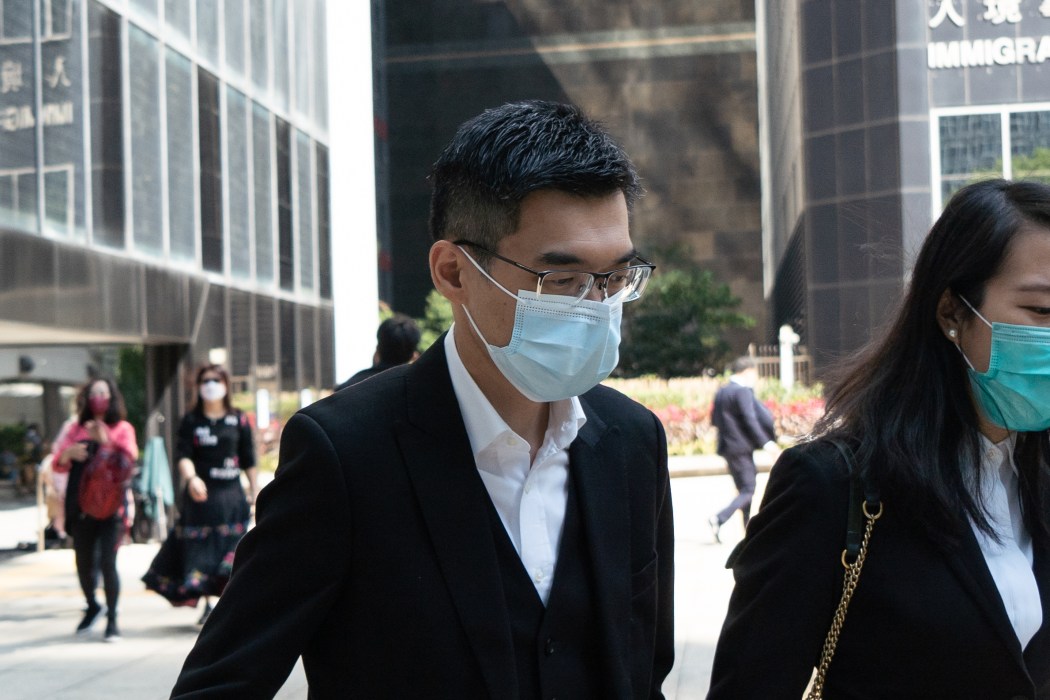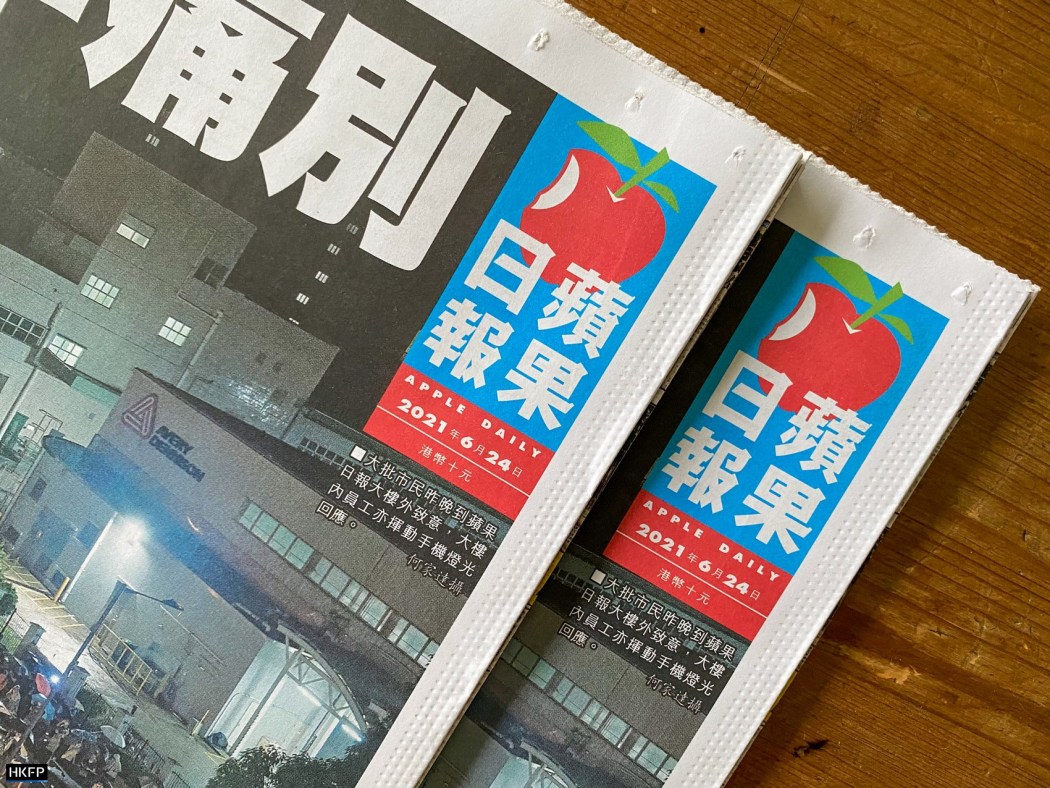The national security trial against Apple Daily founder Jimmy Lai has been adjourned until September 25, 2023.

The trial is estimated to last 40 days and is scheduled to wrap up on November 21, 2023.
Lai, who was sentenced to five years and nine months in jail for two fraud charges last Saturday, appeared at the High Court on Tuesday. He stands accused of two counts of conspiracy to collude with external forces and one count of collusion with external forces under the national security law, as well as one count of publishing allegedly seditious publications under a colonial-era sedition law.
A panel of three handpicked national security judges, Esther Toh, Susanna Remedios, and Alex Lee, agreed to adjourn the case to September next year as the city awaits a decision from Beijing on whether to interpret the national security law.
Chief Executive John Lee last month invited the Standing Committee of the National People’s Congress (NPCSC) to determine whether overseas counsels should be allowed to take part in national security cases.
The proposal came after the High Court granted an application to admit King’s Counsel Timothy Owen, allowing him to represent Lai in his national security trial – an application the government sought several times to block.

The chief executive sought Beijing’s intervention after Hong Kong’s Court of Final Appeal rejected a fourth and final attempt by the city’s justice minister to appeal Owen’s admission.
Questions over interpretation
Senior Counsel Robert Pang, representing the media tycoon, asked the court on Tuesday to adjourn the case until after Owen completed another case in Hong Kong, which is scheduled to last for four months from next May.
Pang said that there could be a possibility that the NPCSC would not issue an interpretation, if it was “properly advised.”
The senior counsel also revealed that the Immigration Department had rejected Owen’s application for a visa extension related to Lai’s case, and that he had left Hong Kong as his other case would not start for another five months.

Prosecutor Anthony Chau, however, said he wanted the trial to be expedited, as a number of other defendants had pleaded guilty and convicted as early as August last year, and asked the court to resume proceedings before May.
However, Toh said that there were a number of problems relating to setting the trial date before May, as it was not known when the proposal for interpretation would be accepted, and when the decision would be made if it were accepted.
Lee also said that with another national security trial expected to start in February next year, if Lai’s trial was scheduled to begin before May, six High Court judges would be tied up in two cases, which would cause “great difficulty” to the court’s diary.
Stay application
Pang also said that an interpretation from the NPCSC could constitute further grounds for an application to halt the trial.
The media tycoon’s legal team indicated in November that they would apply to halt the trial on grounds including the fact that it would be presided over by a panel of three judges instead of a jury.
The application for stay will be heard by the court on May 2.
Lai has been remanded in custody since December 2020. He had since completed a 20-month prison term for various protest-related cases.
Six other defendants in the case, who were ex-employees of Apple Daily or its parent company Next Digital, pleaded guilty to conspiracy to collude with foreign forces last month, and will be sentenced after the trial.
Apple Daily’s last days
Pro-democracy tabloid Apple Daily released its final edition on June 24, 2021, just days after hundreds of police officers raided its newsroom and senior executives were arrested.
It was the second time in 10 months that the newspaper, founded by Lai in 1995, had been raided. Police said the warrant used in June 2021 was issued under the security legislation, and gave them power to search for and seize journalistic material.

The closure of Apple Daily was seen as dealing a significant blow to Hong Kong’s press freedom, with international media rights group Reporters Without Borders decrying “a crackdown on independent media” in Hong Kong under the national security law.
See also: The decline of Hong Kong’s press freedom under the national security law
In June 2020, Beijing inserted national security legislation directly into Hong Kong’s mini-constitution – bypassing the local legislature – following a year of pro-democracy protests and unrest. It criminalised subversion, secession, collusion with foreign forces and terrorist acts, which were broadly defined to include disruption to transport and other infrastructure.
The move gave police sweeping new powers, alarming democrats, civil society groups and trade partners, as such laws have been used broadly to silence and punish dissidents in China. However, the authorities say it has restored stability and peace to the city.
Support HKFP | Policies & Ethics | Error/typo? | Contact Us | Newsletter | Transparency & Annual Report | Apps
Help safeguard press freedom & keep HKFP free for all readers by supporting our team























